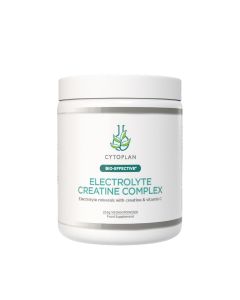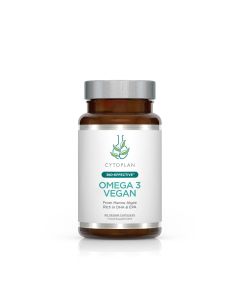Can you eat your way to less stress?
Stress is a major factor that can have a huge impact on someone’s overall health and wellbeing. In today’s world, perceptions of stress and anxiety are increasing with worries about finances, geopolitical instability, the environment, as well as individual health issues, particularly following the pandemic. In a 2023 survey of 6000 adults in the UK, the Mental Health Foundation identified that nearly three-quarters of the population had felt anxious in the previous 2 weeks, with 6-in-10 stating that this anxiety had interfered with their daily lives.
What is stress?
When we are under stress, we can have feelings of overwhelm and anxiety. But stress isn’t just an uncomfortable emotion; it is a physiological response to a stimulus and can have wide-reaching effects in the body. Cortisol is a stress hormone released by the adrenal glands, which helps the body to deal with stressful situations. In the short-term, cortisol is essential for your “fight or flight” response, but long-term raised cortisol can be damaging for health. Ongoing stress has been associated with increased inflammation, weight gain, insulin resistance, raised blood pressure and disordered blood lipids – it may also suppress the immune system and increase the risk of a number of chronic diseases.
Counteracting stress, therefore, is essential for maintaining overall health, and thankfully, there are several steps you can take that can work wonders to support healthy stress levels – be it self-care, regular exercise or ensuring you get plenty of refreshing sleep.
Can our diet help to reduce stress?
Absolutely! Your diet can also play an important role in helping to reduce feelings of stress and anxiety, so let’s have a closer look some of the wonderful, nutritious foods to include in your daily diet – as well as some foods that might be contributing to your raised stress levels, and are, therefore best avoided.
The master mineral… magnesium
Magnesium is an essential mineral that is a cofactor for over 300 enzymes within the body. Much of magnesium’s activity occurs in the central nervous system, where it can play a significant role in regulating mood, sleep and relaxation and can have an influence on perceived stress and anxiety.
Magnesium rich foods include green leafy vegetables, avocados, bananas, dark chocolate, nuts, seeds and legumes.
Include omega-3 fatty acids
Oily fish: think salmon, mackerel, anchovies, sardines and herring (or S.M.A.S.H.) offer a unique source of the essential omega-3 fatty acids EPA and DHA. These fatty acids can support anti-inflammatory pathways and help to protect a number of areas of health, including brain health and mood.
For those following a plant-based diet, including foods such as flax, chia and hemp seeds, as well as walnuts can also provide the omega-3 fatty acid ALA, which can then be converted by the body into EPA and DHA – however this conversion can often be inefficient. EPA and DHA are available in vegan omega-3 supplements from algae.
Nourish your gut with “psychobiotics”
The health of your gut is intrinsically linked to your brain and nervous system, and therefore your body’s ability to manage stress, which we can see when digestive disorders such as irritable bowel syndrome commonly coincide with stress and anxiety. Chronic stress has been shown to promote imbalances in the gut bacteria (known as dysbiosis), which, in turn, can affect our capacity to respond to further stress.
Broadly speaking, plant protein, unsaturated fats, and fibre support a pro-health gut microbiota — in contrast to excessive consumption of animal protein, saturated fats, and simple or artificial sugars, which can all promote dysbiosis. You can read more about how to eat to support gut health, here.
Indeed, a 2023 study demonstrated that a “psychobiotic diet” (high in prebiotics and fermented foods) resulted in improved stress responses, and the participants that ate two-to-three servings of fermented foods a day experienced a strong decrease in perceived stress¹
Balance is key….
While the above nutrients can be especially supportive for healthy stress levels, they need to be included as part of a healthy, balanced diet. Several different nutrients are needed for a healthy stress response – for example, the B vitamins can help with cortisol metabolism and support the nervous system, and adequate protein can support blood glucose balance and is needed for the production of neurotransmitters (chemical messengers involved in the stress response).
A Mediterranean style diet, predominated by fruits, vegetables, whole grains, lean protein and healthy fats, and with minimal refined and processed foods, red meat and added sugars, as well as supporting overall health and wellness, has been positively associated with improvements in feelings of stress and anxiety
It’s also important to be aware that chronic stress increases the body’s metabolic needs, which often results in increased uptake and excretion of nutrients. During stress, we have a higher need for nutrients, so a comprehensive multivitamin and mineral might be supportive alongside a nutrient dense diet.
What about foods to avoid?
Cut down on sugar
Stress has been shown to raise blood sugar levels, as raised cortisol can affect the action of insulin. Likewise, unstable blood sugar levels can increase cortisol output – which can add to your feelings of stress and anxiety. You can help to stop this vicious cycle and keep steady blood sugar levels by reducing added, refined sugars and artificial sweeteners.
Consider your caffeine
Coffee and energy drinks are often a go-to for stress and stress-related fatigue, but while it provides a quick burst of energy, caffeine can also add to already raised cortisol levels – compounding the problem. Why not swap your daily cappuccino for a green tea. Not only does green tea provide a range of protective phytonutrients, but it also contains the amino acid L-Theanine, which can have a calming effect and support relaxation.
What about alcohol?
While pouring a glass of wine at the end of a busy and stressful day may make you feel calmer, this effect is only temporary and over time, alcohol can actually cause an imbalance in our stress hormones and actually add to feelings of stress and anxiety.
So, that’s what to eat – how about how to eat?
Often, when we are stressed, we will eat quickly and make poor food choices which, as we’ve discovered, can exacerbate our feelings of stress and anxiety. Slowing down and eating mindfully can help us to choose foods that are going to give us the nourishment our bodies need to support us through stressful period.
Here are some tips on how to eat mindfully:
- Eat slowly – don’t rush your meals and never eat on the go
- Chew your food thoroughly – this will also help with your digestion
- Eliminate any distractions – think, TV, your phone or laptop
- Focus on how the food makes you feel, and stop when you are full
References
¹ - Berding K, Bastiaanssen TFS, Moloney GM, Boscaini S, Strain CR, Anesi A, Long-Smith C, Mattivi F, Stanton C, Clarke G, Dinan TG, Cryan JF. Feed your microbes to deal with stress: a psychobiotic diet impacts microbial stability and perceived stress in a healthy adult population. Mol Psychiatry. 2023 Feb;28(2):601-610. doi: 10.1038/s41380-022-01817-y. Epub 2022 Oct 27. PMID: 36289300; PMCID: PMC9908549.





